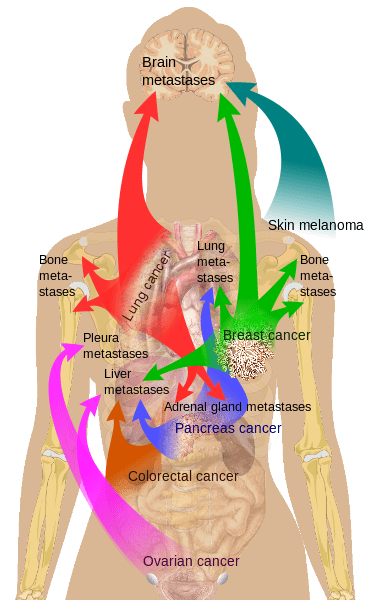Recent studies indicate that Denmark is lagging behind its Nordic neighbours Sweden and Norway when it comes to the early detection of cancer. The numbers indicate that every other Dane chooses to wait and see how early symptoms will play out rather than going to the doctor.
Get involved
In light of this fact, Cancer Society Kræftens Bekæmpelse has today launched a new campaign that aims to educate Danes about the need to go to the doctor as soon as possible by raising awareness about cancer’s seven most common symptoms.
The initiative is also the result of a recent study that found that eight out of ten Danes think friends and relatives (who could potentially notice and comment on physical changes and other symptoms) are not involved enough in each others’ lives.
“Often you yourself will notice that you have started to cough, lost weight or that a mole has changed, but not always. Many will respond quicker [to the need to visit a doctor] if one of their peers comments on [any perceived changes] because it is no longer one’s own little concern,” Cancer Society psychologist Merete Maersk told Kristeligt Dagblad.
More hurtful than helpful?
However, doctors have warned that the campaign may do more to hurt than help patients, saying that if symptoms are far enough advanced to be noticeable, the disease has most likely progressed past the early stages.
“When people have symptoms that can be viewed by friends and family, it is no longer reasonable to talk about an early diagnosis, and it is therefore unlikely that the campaign will improve the prognosis significantly,”
Other doctors believe the campaign may hurt patients and the general populace by causing unnecessary worry.
“It can create unnecessary worries and if people go to the doctor more, there is a risk they will be exposed to unnecessary studies which can have harmful effects,” Juhl Jørgensen, a doctor at Det Nordiske Cochrane Center, told the newspaper paper.
The Ethics of Involvement
Meanwhile, a former chairman and senior consultant of Det Etiske Råd, Ole Hartling, believes that a ‘diagnostic culture’ may compromise people’s ability to enjoy life.
“One should not be negligent when signs of disease appear, but there is a tendency to exaggerate the concern, so that in itself becomes a kind of disease,” he said.
Thomas Ploug, an ethics professor at Aalborg University who is a member of Det Etiske Råd, agreed and emphasised the need to strike a balance.
“The appeal is reasonable, but it is important to find a balance,” he said.
“We are bombarded with information about harmful substances. It may take the upper hand [in our interactions] especially with close relations, because the health of those we care for means a lot to us.”













